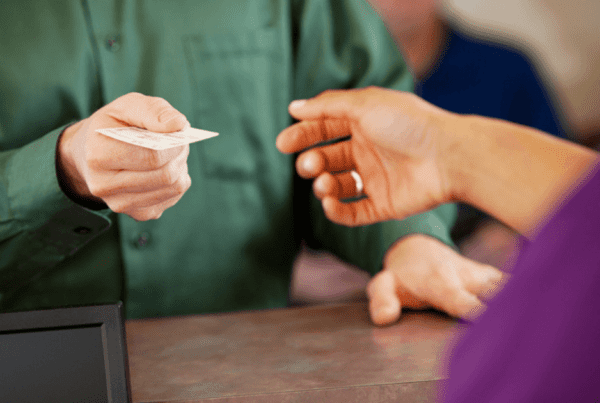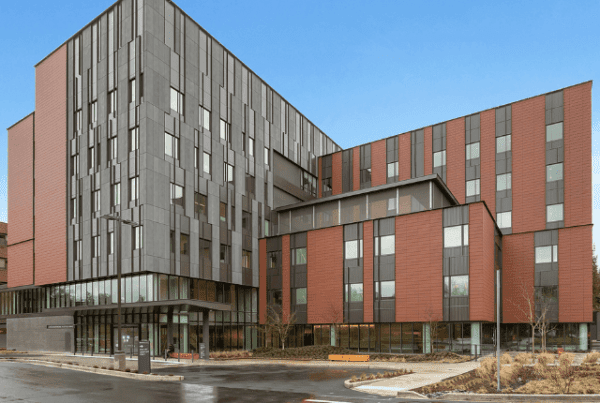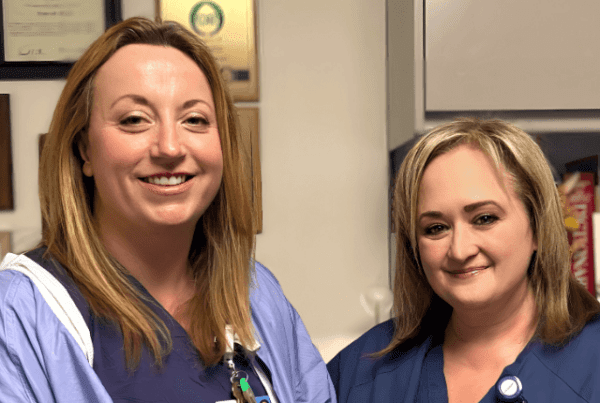A message from Dr. Paul Ramsey
I write to express my most sincere appreciation for the chance to work with all of you — the talented and dedicated faculty, staff, trainees, and students who are responsible for making UW Medicine one of the best clinical, research and learning health systems in the world. I also write to announce that I have decided to retire this coming summer. I will step down from my administrative position as CEO of UW Medicine and Dean of the School of Medicine, effective June 30, and will retire from employment at the University of Washington, effective July 31, 2022. UW President Ana Mari Cauce will send information about successor leadership to the UW Medicine community on Monday, April 11.
It has been my good fortune to have spent my professional life thus far with UW Medicine. After completing medical school and an internal medicine residency on the East Coast, I moved to Seattle in 1978 for fellowship training and a year as chief medical resident at UW Medical Center. I joined the faculty in the School of Medicine in 1981 and began a career as a general internist with approximately equal portions of my professional life devoted to funded research, teaching and clinical practice as a primary care physician. Since 1997 when I began serving in my current position, I have spent the majority of my time on administrative work but have continued a small primary care practice. I feel especially fortunate to have truly enjoyed all of my professional activities. Being an active member of a clinical, research and learning health system has provided tremendous professional satisfaction.
UW Medicine has grown dramatically over the past 40 years, but the core values that attracted me to spend the majority of my career here remain. When I think of the many colleagues with whom I have worked, words that come immediately to mind are integrity, respect, collaboration, commitment to excellence, innovation, humility, and caring. I have learned so much from many mentors, some older than I am, but many who have been younger. Although I would like to recognize these individuals by name who have shaped my professional development, the list would be much too long for this message. The excellence of UW Medicine is due to the people, and I am so grateful for all that I have learned from the members of our community.
Over the last two years of the COVID-19 pandemic, I have developed even more appreciation for the excellence of your clinical, research, and education/training work. From the beginning of the pandemic (90 Days on the Front Line), you have been global leaders in the clinical, research, public health, and learning response to the pandemic.
And you have accomplished so much more in the past two years. Your commitment to a UW Medicine Patients Are First approach to clinical care has led to continued improvement of the quality of care as evidenced by multiple local, regional, and national awards. The completion of UW Medicine’s conversion to a single electronic health record during the pandemic (Epic is Live Across UW Medicine and SCCA) should further enhance clinical excellence. Your research programs have continued to grow with record increases in NIH grant awards and continued global recognition for leadership in the full range of biomedical disciplines. Your dedication to collaboration has resulted in the excellence of multidisciplinary research institutes such as the Institute for Protein Design, Institute for Health Metrics and Evaluation, Brotman Baty Institute for Precision Medicine, Institute for Stem Cell and Regenerative Medicine, and the Garvey Institute for Brain Health Solutions. At its recent March meeting, the UW Board of Regents approved a project for a new on-campus building that will become the home for two of these institutes—Institute for Protein Design and Brotman Baty Institute.
As an integrated clinical, research, and learning health system (UW Medicine Overview), UW Medicine has a single mission — to improve the health of the public. To advance this mission of improving health for all people, our commitment to equity, diversity, and inclusion is “mission critical.” Coincident with the beginning of the pandemic, the UW Medicine Office of Healthcare Equity was launched, and its vital work is now coordinated with diversity, equity and inclusion planning and actions in all of UW Medicine’s settings, including the School’s 31 departments, UW Medicine hospitals and clinics, and all central medical school offices such as the Offices of Academic, Regional, and Rural Affairs, Faculty Affairs, Graduate Medical Education, Research and Graduate Education, and Administration and Finance. I greatly appreciate the commitment of hundreds of faculty, staff, students, and trainees to leading changes in our programs and systems that will advance our equity, diversity and inclusion goals. Despite the enormous challenges of the pandemic, you have renewed your commitment to supporting an inclusive, active learning environment in classrooms, laboratories, and diverse clinical settings across the five state WWAMI region for our 5,000 students and trainees. We are fortunate also that the Office of Faculty Affairs has focused on wellbeing, communication, and resilience for UW Medicine faculty and staff during the pandemic.
Many members of the UW Medicine senior administrative team have devoted considerable work over the last two years to plans for creation of the Fred Hutchinson Cancer Center (FHCC) that will be UW Medicine’s cancer program and will operate as a clinically integrated part of UW Medicine. These extensive plans were approved in March by the UW Board of Regents and the Fred Hutchinson Cancer Research Center Board, and the new FHCC was launched last Friday (The Future of Cancer Research and Care). Establishment of the Fred Hutchinson Cancer Center provides the platform for further improvements in the care of patients with cancer with a commitment to leadership in healthcare equity related to cancer prevention, diagnosis, and treatment.
The past two years have also been a time of increased communication and community engagement. Thousands of UW Medicine faculty, staff, students, and trainees have gathered frequently in town halls, readership of The Huddle increased dramatically, and the Office of Healthcare Equity has substantially grown our community engagement. In addition, the UW Medicine Advancement team has engaged increasing numbers of community members in philanthropic support for your work, and the UW Medicine Strategic Marketing and Communications team has been enhancing links to the community that have engendered support and advocacy for your clinical, research, and learning activities. UW Medicine has received extraordinarily generous philanthropic support from our community over the past two years, and the State of Washington has provided major new resources to advance training of mental health professionals, including funding for the UW Medicine Behavioral Health Teaching Facility (UW Medicine Striving to Improve Brain Health).
I am deeply grateful for your extremely hard work and success during these last two exceptionally challenging years. The brief summary in the paragraphs above represents only a sample of your many accomplishments over the past two years. As we hope that the end of the pandemic is in sight, your work has positioned UW Medicine to be an international leader for the post pandemic changes in medicine. I am confident that your commitment to excellence will build on learning from the pandemic to continue to improve patient care, accelerate translational research, improve the learning environment with innovative, active learning approaches, and make UW Medicine a leader in healthcare equity.
Why have I decided to retire this summer? The short answer is that the time is right. I have always hoped that my retirement would coincide with UW Medicine being in a strong position to lead changes in medicine: today it is. UW Medicine is now more of a global leader than ever before. With ~35,000 employees in the eight organizations that are members of the UW Medicine family, we have a large and talented workforce, and we are fortunate to have an equally talented group of students and trainees. And the UW Medicine leadership team members are national subject matter experts in their areas of leadership, experienced leaders, and very stable. Among the 100 individuals holding the senior most UW Medicine leadership positions, only a small number of these positions are in transition. I feel very fortunate to work with this outstanding group of leaders, and I know that UW Medicine is in terrific hands to successfully address any challenges as we work to always fulfill our mission of improving the health of the public. UW Medicine has the talented workforce and leadership to further enhance the excellence of our clinical, research and learning programs in the coming years.
I expect that some will ask what I will do in retirement. My family is very important to me, and I plan to spend more time with my wife, Bonnie, my children, Ann and Tim, my son-in-law, Eric and my daughter-in-law, Lauren, and my four grandchildren, Dash, Clara, Penny, and Rosie. I would like to thank my family publicly in this message for their love and support throughout my professional career at UW Medicine. Retirement will provide more time for family, exercise, reading, and volunteer activities. I am committed to improving healthcare equity and will seek volunteer activities that are consistent with our UW Medicine mission of improving health for all people.
Please accept my most heartfelt thanks for the experience of being on the UW Medicine team with all of you.
Sincerely,

Paul G. Ramsey, M.D.


